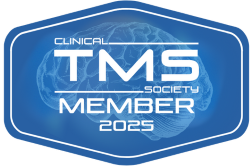
If you’re thinking about using a weight loss drug like Ozempic or Wegovy—or if you’re already on one—it’s likely because you’ve heard about how effective they are. And it’s true. These FDA-approved medications, both developed by Novo Nordisk and designed initially to treat type 2 diabetes, have quickly become front-runners in the weight management space.
Thanks to their ability to regulate appetite and blood sugar through a hormone called glucagon-like peptide-1 (GLP-1), users can often shed pounds where other efforts failed. But there’s another side to these powerful drugs—one that’s not getting nearly as much attention: your mental health.
Why Are People Feeling Sad on Ozempic and Wegovy?
In recent months, online searches for terms like “Ozempic depression” have surged by more than 300 percent. Across Reddit, TikTok, and support groups, users are sharing experiences of emotional blunting, anxiety, and depressive episodes they didn’t expect. Some describe feeling “flat” or “numb.” Others say they’ve lost interest in things they once enjoyed. And in more serious cases, a few have reported thoughts of self-harm.
What’s going on?
To understand the potential mental health impact, we need to look at how these drugs work. Ozempic and Wegovy are part of a class called GLP-1 receptor agonists. They mimic a natural gut hormone that helps control blood sugar and appetite that interacts with the brain’s reward and emotion centers.
So while these medications are excellent at curbing cravings and supporting weight loss, they may also be influencing mood in ways researchers are still trying to understand.
What the Research and Reports Are Telling Us
Let’s start with what we know.
Early clinical trials of semaglutide did not flag mood changes as a common side effect, and major reviews have not found a definitive link to depression or suicidal thoughts. For example, a recent FDA report on GLP-1 drugs noted that their “preliminary evaluation has not found evidence that use of these medicines causes suicidal thoughts or actions”.
Likewise, a new one-year cohort study found no excess risk of neuropsychiatric issues (like depression) in patients taking semaglutide compared to other diabetes drugs. In line with this, the European Medicines Agency (EMA) has reported no evidence of a causal connection between GLP-1 agonists and suicidal behavior.

That’s where anecdotal evidence becomes essential. Thousands of users have come forward with stories that suggest a mental shift after starting these drugs. Some describe crying more often, feeling anxious for no apparent reason, or experiencing a deep sense of emotional detachment. These personal accounts aren’t proof, but they have raised red flags that researchers are beginning to explore.
A 2024 cohort study published in Nature looked at more than 300,000 patients and found that those taking semaglutide (the active ingredient in both Ozempic and Wegovy) had a slightly increased risk of depression and suicidal ideation compared to those not taking the medication. Another analysis of adverse event databases revealed more than 500 reports of psychiatric symptoms—ranging from anxiety to thoughts of self-harm—linked to GLP-1 drugs.
In response, the FDA and European Medicines Agency have launched reviews to determine whether these reports point to a pattern or are coincidental. So far, the FDA says there’s no definitive evidence that GLP-1 medications cause suicidal thoughts, but they continue to investigate.
The bottom line is that the science on this issue is still evolving. But if you’re feeling emotionally different while taking a weight loss drug, you’re not imagining it, and you’re not alone.
Why Mood Changes Might Happen
While no one can say for sure why some people experience depression or anxiety on these medications, there are a few likely explanations.
First, the drugs act on brain regions that regulate appetite and reward, areas that overlap with mood regulation. When the brain no longer finds the same satisfaction in eating, it may dull other sources of joy, too. Some people describe this shift as “emotional dullness” or as if they’re just going through the motions. It’s subtle but can leave you feeling disconnected or low without fully understanding why.

Second, rapid weight loss can be emotionally complex. When your body changes quickly, it can trigger many internal reactions. You may feel pressure to prevent future weight gain, start receiving more attention than you’re used to, or struggle with lingering insecurities. For anyone with a personal or family history of mood disorders, this kind of psychological stress can heighten the risk of depression or anxiety, even if the physical changes are positive.
Third, the side effects of GLP-1 drugs—like nausea, fatigue, and stomach discomfort—can wear on your mental well-being over time. If you feel sick every day, it’s hard to stay upbeat, no matter how much weight you’re losing.
What to Watch For
Whether you’re weeks into your GLP-1 journey or just starting to consider it, it’s important to pay attention to your emotional state. These are some signs that shouldn’t be ignored:
- You feel sad or flat most days
- You’ve lost interest in things that usually make you happy
- You’re more anxious, irritable, or restless than usual
- You have trouble sleeping or concentrating
- You’ve had thoughts of self-harm or hopelessness
These may signal a mood disorder developing or worsening while on the medication.
You Have Options and Support
The good thing is you don’t have to choose between your physical and emotional health. The goal isn’t just to lose weight—it’s to feel like yourself again. That’s where psychiatric oversight becomes essential.
At Relief Mental Health, we understand how weight loss drugs can impact your overall well-being. Our team specializes in medication management and treatments for depression, helping you safely navigate the emotional ups and downs that may come with GLP-1 therapies. Whether you’re feeling low, anxious, or just “a little off,” we’ll work with you to develop a personalized care plan that addresses your mental and physical health.
Weight loss drugs like Ozempic and Wegovy have helped millions achieve results they never thought possible. But if you’re feeling emotionally different (more irritable, anxious, or down than usual), don’t brush it off.
There’s growing evidence that these GLP-1 side effects may go beyond the physical. And while the long-term impact is still being studied, your emotional health deserves attention right now. If you’ve been considering these drugs but feel hesitant because of the potential side effects, bariatric surgery may be another option worth exploring. It’s a more permanent approach to weight management and may offer a better fit depending on your health goals and medical history.
Contact Us Today
If you’ve noticed changes in your mood since starting a weight-loss medication, or if you’re worried about how it might affect you, Relief Mental Health is here to help. Our expert clinicians provide the support and oversight you need to feel confident, safe, and emotionally balanced on your treatment journey. Contact us today to get the personalized care you deserve.


